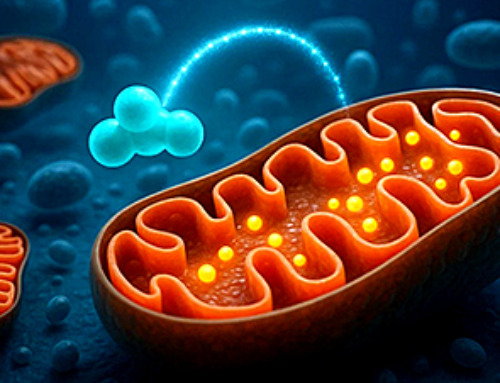Patients tolerated synthetic THC (dronabinol) well, without the adverse effects commonly associated with existing Alzheimer’s agitation medications.
A study conducted by researchers from Johns Hopkins University School of Medicine and Tufts University School of Medicine found that a pill form of dronabinol, an FDA-approved synthetic version of THC (the main ingredient in marijuana), reduces agitation in Alzheimer’s patients by an average of 30%.
The researchers say that compared to current treatments for agitation, such as antipsychotics, dronabinol produced similar calming effects without adverse results such as delirium or seizures.
Results of the eight-year clinical trial were presented at the International Psychogeriatric Association conference in Buenos Aires, Argentina, on Sept. 26.“These new findings represent eight years of work dedicated to people who have Alzheimer’s as well as their caregivers,” says Paul Rosenberg, M.D., professor of psychiatry and behavioral sciences at the Johns Hopkins University School of Medicine and co-principal investigator for this study. “Agitation is one of the most distressing symptoms of Alzheimer’s dementia, and we are pleased to make positive strides forward in the treatment of these patients.”
Alzheimer’s Agitation and the Need for New Treatments
Alzheimer’s disease is the most common neurodegenerative disease in the United States, with an estimated 6.7 million cases in Americans age 65 and older, according to the National Institutes of Health. This number is predicted to grow to 13.8 million by 2060. Agitation is difficult to manage. It is defined as excess motor activity (pacing or repetitive movements), verbal aggression, and/or physical aggression. An estimated 40% of people with Alzheimer’s develop agitation.
Although mild agitation can sometimes be moderated by behavioral intervention, in moderate to severe cases, some form of medication is typically required to manage symptoms and provide relief for caregivers.“It is the agitation, not the memory loss, that often drives individuals with dementia to the emergency department and long-term-care facilities,” says Brent Forester, M.D., psychiatrist-in-chief and chairman of the Department of Psychiatry at Tufts Medical Center and co-principal investigator on the study. “Dronabinol has the potential to both reduce health care costs and make an important, positive impact on caregivers’ mental and physical health.”
In the new study, researchers recruited 75 patients with severe Alzheimer’s agitation across five clinical sites, including 35 admitted to The Johns Hopkins Hospital between March 2017 and May 2024. To qualify, patients had to have a formal clinical diagnosis of Alzheimer’s disease and show at least one major symptom of agitation for at least two weeks. Prior to treatment, patients were tested for agitation using the Pittsburgh Agitation Scale (PAS) and the Neuropsychiatric Inventory Agitation/Aggression subscale (NPI-C).
The PAS scores agitation from 0 to 4, with 4 being the most agitated. The NPI-C provides a brief assessment of neuropsychiatric symptoms including delusions, hallucinations, anxiety/depression, and other factors. Baseline scores were acquired from caregivers at the onset of the trial.
Participants were then randomly selected to get either 5 milligrams of dronabinol in pill form or a placebo in pill form twice daily for three weeks, and then retested using the PAS and NPI-C.
Future Research and Cautions
Results from the dronabinol group show an average PAS starting value of 9.68 and an end value of 7.26 after three weeks, a 30% decrease compared to the scores in the placebo group which did not change. Additionally, dronabinol was well tolerated by patients compared to current treatments for agitation.“Results like this are encouraging. We are thrilled that FDA-approved dronabinol was robustly effective and appeared safe for treatment of agitation,” says Rosenberg. “This adds another tool in our efforts to improve the care of our loved ones with Alzheimer’s disease.”
The researchers say they plan longer-term studies of dronabinol for Alzheimer’s disease, as well as expanded sample sizes. They also hope to continue to explore other ways medical cannabis can benefit both patients and caregivers.
Dronabinol is a synthetic form of THC, the psychoactive main ingredient in cannabis (marijuana). The drug was approved by the U.S. Food and Drug Administration in 1985 to treat loss of appetite in patients with HIV/AIDS, and is currently prescribed to treat nausea and vomiting in those undergoing cancer chemotherapy.
The investigators caution that their current study results are not intended to encourage or inform the use of other forms of medical marijuana available in 38 states and the District of Columbia.
Meeting: International Psychogeriatric Association conference
Co-investigators include Halima Amjad, Haroon Burhanullah and Milap Nowrangi at the Johns Hopkins University School of Medicine, Marc Agronin at Miami Jewish Health, and James Wilkins and David Harper at McLean Hospital.
The study was funded by a grant from the National Institute of Aging at the National Institutes of Health.
News
Differentiating cancerous and healthy cells through motion analysis
Researchers from Tokyo Metropolitan University have found that the motion of unlabeled cells can be used to tell whether they are cancerous or healthy. They observed malignant fibrosarcoma cells and [...]
This Tiny Cellular Gate Could Be the Key to Curing Cancer – And Regrowing Hair
After more than five decades of mystery, scientists have finally unveiled the detailed structure and function of a long-theorized molecular machine in our mitochondria — the mitochondrial pyruvate carrier. This microscopic gatekeeper controls how [...]
Unlocking Vision’s Secrets: Researchers Reveal 3D Structure of Key Eye Protein
Researchers have uncovered the 3D structure of RBP3, a key protein in vision, revealing how it transports retinoids and fatty acids and how its dysfunction may lead to retinal diseases. Proteins play a critical [...]
5 Key Facts About Nanoplastics and How They Affect the Human Body
Nanoplastics are typically defined as plastic particles smaller than 1000 nanometers. These particles are increasingly being detected in human tissues: they can bypass biological barriers, accumulate in organs, and may influence health in ways [...]
Measles Is Back: Doctors Warn of Dangerous Surge Across the U.S.
Parents are encouraged to contact their pediatrician if their child has been exposed to measles or is showing symptoms. Pediatric infectious disease experts are emphasizing the critical importance of measles vaccination, as the highly [...]
AI at the Speed of Light: How Silicon Photonics Are Reinventing Hardware
A cutting-edge AI acceleration platform powered by light rather than electricity could revolutionize how AI is trained and deployed. Using photonic integrated circuits made from advanced III-V semiconductors, researchers have developed a system that vastly [...]
A Grain of Brain, 523 Million Synapses, Most Complicated Neuroscience Experiment Ever Attempted
A team of over 150 scientists has achieved what once seemed impossible: a complete wiring and activity map of a tiny section of a mammalian brain. This feat, part of the MICrONS Project, rivals [...]
The Secret “Radar” Bacteria Use To Outsmart Their Enemies
A chemical radar allows bacteria to sense and eliminate predators. Investigating how microorganisms communicate deepens our understanding of the complex ecological interactions that shape our environment is an area of key focus for the [...]
Psychologists explore ethical issues associated with human-AI relationships
It's becoming increasingly commonplace for people to develop intimate, long-term relationships with artificial intelligence (AI) technologies. At their extreme, people have "married" their AI companions in non-legally binding ceremonies, and at least two people [...]
When You Lose Weight, Where Does It Actually Go?
Most health professionals lack a clear understanding of how body fat is lost, often subscribing to misconceptions like fat converting to energy or muscle. The truth is, fat is actually broken down into carbon [...]
How Everyday Plastics Quietly Turn Into DNA-Damaging Nanoparticles
The same unique structure that makes plastic so versatile also makes it susceptible to breaking down into harmful micro- and nanoscale particles. The world is saturated with trillions of microscopic and nanoscopic plastic particles, some smaller [...]
AI Outperforms Physicians in Real-World Urgent Care Decisions, Study Finds
The study, conducted at the virtual urgent care clinic Cedars-Sinai Connect in LA, compared recommendations given in about 500 visits of adult patients with relatively common symptoms – respiratory, urinary, eye, vaginal and dental. [...]
Challenging the Big Bang: A Multi-Singularity Origin for the Universe
In a study published in the journal Classical and Quantum Gravity, Dr. Richard Lieu, a physics professor at The University of Alabama in Huntsville (UAH), which is a part of The University of Alabama System, suggests that [...]
New drug restores vision by regenerating retinal nerves
Vision is one of the most crucial human senses, yet over 300 million people worldwide are at risk of vision loss due to various retinal diseases. While recent advancements in retinal disease treatments have [...]
Shingles vaccine cuts dementia risk by 20%, new study shows
A shingles shot may do more than prevent rash — it could help shield the aging brain from dementia, according to a landmark study using real-world data from the UK. A routine vaccine could [...]
AI Predicts Sudden Cardiac Arrest Days Before It Strikes
AI can now predict deadly heart arrhythmias up to two weeks in advance, potentially transforming cardiac care. Artificial intelligence could play a key role in preventing many cases of sudden cardiac death, according to [...]





















